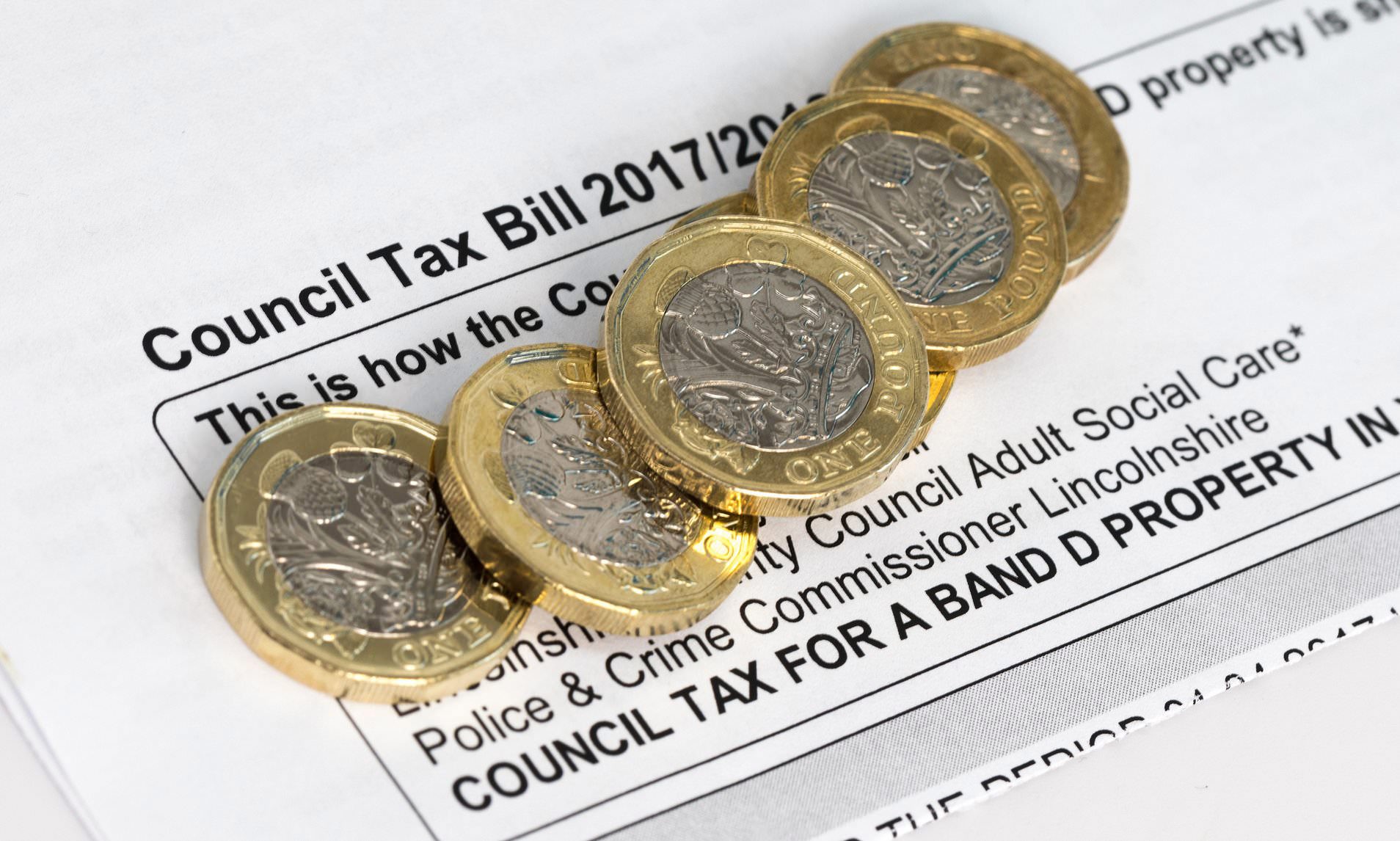Money
MISS MONEYSAVER: 10 budget boosting tips you (probably) haven’t thought of yet

Oh joy of joys, a host of bills are going up this month.
Council tax is rising by between 3 and 5 per cent, depending where you live; water bills are being hiked by 7.5 per cent on average; broadband and mobile bills are soaring by over 17 per cent in some cases and, of course, the energy discount that kept us going through the winter has come to an end.
Admittedly, pensions and some benefits are also going up but overall it looks like we will have to find more ways to save.
So I’ve set my team at MoneyMagpie.com the task and here’s what we’ve come up with. (If you’ve found some new ones yourself do let me know at AskJasmine@MoneyMagpie.com.)
n According to the Office for National Statistics (ONS), the average UK household spends £4,296 on groceries annually. Even small changes can help a little, so don’t throw away old, bruised and soft fruit: they make great smoothies, or you turn them into muffins to stop food wastage.
Get as much free and cheap food as possible using the food-sharing apps Olio and TooGoodToGo and going to ApprovedFood.co.uk for cheaper, out-of-season items.
It’s worth remembering the power of your local community. According to Nextdoor.co.uk, a third of us have cut costs thanks to neighbours, saving up to £200 a year. So get onto platforms such as Nextdoor (or set up a groupchat) where you can swap items with people in your community, share babysitting, and get free furniture, food and clothes that others are giving away.
As stamp prices go up it’s worth thinking about ways to cut the cost of postage. One of my team found that it was a lot cheaper to split a light gift he was sending by post than to send it in one package.
‘I paid for two large letters (now £1.45 each) rather than pay for one ‘small parcel’ at £4.45,’ he says. ‘The reason is because Royal Mail’s ‘large letters’ allow you to send any items that can fit through an inch-thick letterbox.’ Take a couple of spare envelopes with you to the Post Office and see which option works out cheapest.
Make sure you’re getting the most from your job. Double check what, if any, employer discounts and benefits you are eligible for. Larger companies often have tie-ins with supermarket chains, restaurants and mobile phone companies, among others, and you may get discounts of up to 10 per cent. Also take advantage of any extra pension payments your employer offers, even if it could mean you have to put in a bit more yourself month on month.
It may not be a glamorous place to look for bargains, but don’t forget your local dump. Many waste-processing centres keep a lot of the furniture, TVs, toys and more if they’re basically good. Then you can buy them from their ‘charity shop’ at a fraction of the usual cost. This includes flat-screen TVs for £25-60 and bikes for £30-40 each.
Cut the cost of beauty. Sephora’s ‘pick-n-mix’ section offers five mini products to try for free (although you have to pay £3.95 for postage). Go to sephora.co.uk/pick-n-mix.
Buy clothes and household goods cheaply at Simon Charles auctioneers (simoncharles-auctioneers.co.uk). You can find ex-High Street goods from firms such as John Lewis that have been returned to the shop.
There’s nothing wrong with the products, it’s just that they haven’t necessarily been returned in their box or may have minor dings.
You can also bid on new clothes, including branded designer items, beauty products, toys, furniture and equipment.
If you’re planning on a spring clean or renovation, rather than wasting money on things you’ll use only once, rent cleaning equipment, power tools, cooking or sewing items and more at the Library of Things (libraryofthings.co.uk).
Think about ways you can reduce your water usage. Put the plug in the bath when having a shower, then use what you collect to flush the loo and your water bill will be cheaper.
Or put a watering can in the sink and collect the cold water as you wait for the hot to come through. Keep a jug or bottle of water in the fridge to save running the tap all the time.
Cut the cost of home essentials. Chop sponges in half and you’ll have twice as many to use in the kitchen. Squash your toilet rolls before you use them because then it will be harder to get the sheets to unfold and you won’t waste as much.
Cut the bottom off tubes of toothpaste, tomato puree etc so none goes to waste. To ensure there’s no leakage, use a clothes peg to seal the tube.
Sicily sunshine – at just half the price
The Easter break is a popular time for thinking about booking another holiday. And there are some great deals which mean you could get away for less.
SeeSicily is offering tourists 50 pc off flights, one free tourist attraction and a free night’s accommodation if you stay in Sicily for at least three nights (apart from July and August) up to the end of September 2023. You just have to book your trip through an affiliated partner (visitsicilyinfo/en/seesicily).
If you’re flexible about where and when you go, you could take advantage of pricing glitches. The newsletter Jack’s Flight Club (jacksflightclub.com) sends subscribers details of routes and dates going for less than the airlines’ advertised fares.
Money
They Call Me «Dragon» in the Crypto Community: Dragan Pajić Remarkable Journey

In the world of cryptocurrencies, Dragan Pajić, known as «Dragon,» has emerged as a prominent figure, earning him a well-deserved reputation in the Balkans and beyond. As the largest crypto influencer in the region, serial entrepreneur, and owner of the renowned 100X Club, Dragan has empowered thousands of individuals through his informative YouTube channel, demonstrating how they can multiply their investments by 100 times in the crypto market.
Through his marketing agency, DigitalPR, which has thrived for the past decade, and his rapidly-growing herbal brand called «Bonaturo,» Dragan has made a significant impact on both the digital marketing landscape and the health industry. Famous singers, actors, and public figures have not only embraced but also endorsed his brand, cementing his position as a trusted name in the market.
Dragan Pajić entrepreneurial ventures go beyond the crypto and marketing realms. He has diversified his investment portfolio, venturing into solar power plants, properties, and unicorn projects. Currently, he is an active investor and co-founder of Daopeople, the first decentralized web 3 social media platform based in Dubai.
Exciting times lie ahead for Dragan as he prepares to launch his long-awaited 100X Crypto Academy for a global audience. This groundbreaking educational platform will equip individuals with the knowledge and skills required to navigate the crypto market successfully.
Dragan Pajić achievements have not gone unnoticed. In 2018, he was recognized as one of the ten most influential young people in Bosnia.
Having accomplished his first million-dollar milestone in his twenties, he now holds the title of the Balkans’ most influential crypto influencer.
Looking toward the future, Dragan aims to empower even more young individuals, providing them with financial freedom and education in the domains of entrepreneurship, business, crypto, and investing. His ultimate goal is to become the first founder of a unicorn company (worth over $1 billion) from the Balkan region.
Connect with Dragan Pajić on his social media channels to stay updated on his latest ventures and insights
Instagram: https://instagram.com/draganpajic1?igshid=MzRlODBiNWFlZA==
Facebook: https://www.facebook.com/draganpajic1?mibextid=LQQJ4d
Twitter: @Dragan_Pajic
Money
Meet the cheapest US states to buy a house

A new study analyzing Zillow data has found that the monthly median sale price of a house last year was more than $500,000 in Utah, California and Colorado — and more than a staggering $800,000 in Hawaii.
The study, conducted by Studio City realtors, found that Hawaii clocked in as the most expensive state in the U.S. for homebuyers. On the island, the average home price was $805,775 — hundreds of thousands of dollars more than the cheapest state on the list.
Studio City realtor Tony Mariotti noted that market turbulence contributed to a “significant increase” in house prices across the U.S.
Home prices went up nationwide in February after months of declines amid low inventory and a small uptick in demand — and experts have said they expect affordability will continue to be a problem for prospective homebuyers in the months ahead.
Here are the priciest and cheapest U.S. states to buy a home:
The most expensive states to buy a home
Eight states and Washington, D.C., saw a monthly median sale price of a house last year of $400,000 or higher, with Oregon sitting at that exact figure.
Washington state, Nevada, Montana and Washington, D.C., came in between $402,900 and $487,500.
California, Colorado and Hawaii were the top three most expensive, at $537,000, $537,125 and $805,775 in monthly median sale prices last year, respectively.
Costs differed in different areas within states: for example, the median monthly sale price of a house last year in California’s cheapest city of Red Bluff was $320,000 — while the ticket in its most expensive city of San Jose was $1,370,000.
Money
Don’t just hug a tree this Arbor Day — plant one, too

Nearly five years ago, Hurricane Michael became the first Category 5 storm to hit the United States in 25 years. It left a trail of destruction in its wake, and my community of Panama City — located in the Florida Panhandle — was hit especially hard. Since then, working together as neighbors and citizens, we’ve made significant progress in key recovery areas, including rebuilding key and vital infrastructure, enhancing quality of life, developing our downtown, and attracting new businesses across a mix of industries. However, one of our most important recovery efforts lies within our tree canopy restoration — an often overlooked but vital area of disaster recovery and prevention.
When Hurricane Michael uprooted nearly 80 percent of Panama City’s trees — approximately a million trees, generating 5.7 million cubic yards of debris within the city — it created serious challenges. Not only did we lose the beautiful canopy from 100-year-old oak trees, but the vital function of the trees was lost, the first of which was the absorption of groundwater. The loss of so many trees significantly increased the risk of flooding in our community,
where we now experience flooding in areas that haven’t typically flooded in the 114-year history of the city. The second function lost from the lack of trees is shade.
Trees serve to mitigate the urban heat island effect, where an entire city is warmed by concrete being heated by the sun. These increased temperatures not only result in uncomfortably hot weather but can also lead to other extreme weather events like wildfires. Since the storm, Panama City has experienced increased flooding whenever thunderstorms roll through, in addition to wildfires that consumed over 40,000 acres last year – both due in part to the damaged tree canopy and loss of trees.
-

 Innovation2 años ago
Innovation2 años agoInnovators in Social-Emotional Learning: Dr. Myava Clark and Chris Clark Jr.
-

 Innovation2 años ago
Innovation2 años agoMehdi Manoochehrzadeh: A Visionary Language Educator Transforming English Learning with Puzzling Method
-

 Leadership3 años ago
Leadership3 años agoBrain Behind Multi-Million Dollar Beauty Brands Launches Skin Care Line for Women 50+
-

 Real Estate2 años ago
Real Estate2 años agoTransforming the Real Estate World: The Story of Alberto Conesa
-

 Real Estate3 años ago
Real Estate3 años ago30 Israelis make Forbes 2022 billionaires list, led by Miriam Adelson
-

 Innovation2 años ago
Innovation2 años agoLeo Horacio: A Successful Entrepreneur in the Ecommerce and Online Sales Industry
-

 Innovation3 años ago
Innovation3 años agoMelinda Herron Created a Niche for Marketing Men’s Grooming Products, Launches 103 Collection in National Retail
-

 Lifestyle3 años ago
Lifestyle3 años agoDuty Free Dynamics adds yoga brand Manduka to its lifestyle portfolio
